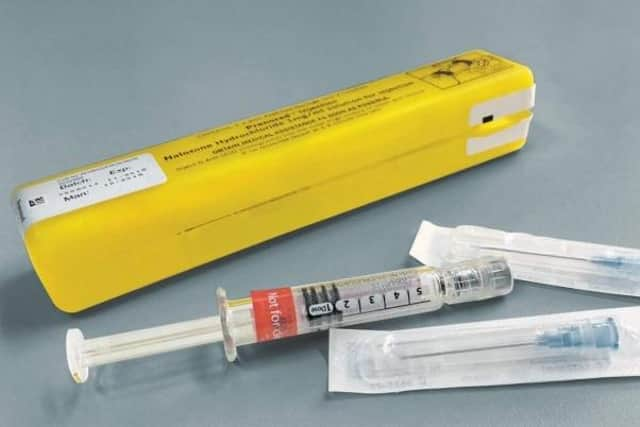Drug use is no stranger to the Western Isles, but few people know about Naloxone.


The stigma that drug use has, especially in more remote areas, often means individuals, families and those who are taking drugs may feel too ashamed to ask for help. However, each person within the drug user’s circle can be affected by their drug abuse, including their family, children, friends and work colleagues.
To raise awareness of this worrying trend, NHS Western Isles has gathered stories from both the perspective of a local drug user and their family member, to help raise awareness of how difficult life can be, whilst encouraging other users and families to seek support when they require it.
Advertisement
Hide AdAdvertisement
Hide AdMr A. is a regular drug user, admitting on occasions to being a very heavy daily drug user. Last year, he decided to smoke a mix of drugs before his family arrived home. However, Mr. A. was not aware of the strength of the drugs he was taking and the only thing he recalls after overdosing, was coming round, with Paramedics and others around him.
He said, “I’m told I was found unresponsive. My family thought I was dead and ran for help, but I don’t remember any of that. I just remember being very confused when I came round after the Paramedic administered the Naloxone.”
Naloxone is a drug that is commonly used to reverse the effects of an opioid overdose, from drugs such as Heroin, Methadone, Buprenorphine and Oxycodone, as well as other illicit and prescribed opiate-based medications.
Ms B grew up knowing her relative used drugs. Whilst she was unaware which drugs were being taken, she was aware of how their behaviour became “irrational and strange”. It was just something the relative did and it was not spoken about within their family.
Advertisement
Hide AdAdvertisement
Hide AdShe said, “It’s not easy to talk about how the drug use of loved ones affects you, even to other family members who know what’s going on. For me, I was worried I may hurt my family by bringing up the conversation.
“The day of the overdose, I had decided to visit my relative. I noticed the window was open and I could hear the TV, so knew someone was in. I had a key for the flat, but not one to access the main door. I remember thinking ‘I’ll just go home’, but then decided to buzz a neighbour to open the door, which they did.
“I unlocked the flat door and saw him slumped over the couch face down. His skin was a blue-purple colour, and he was cold to touch. I didn’t know then if he was breathing, but he then gave a strange gasp of breath sound. I panicked. I remember screaming and running from the property looking for help. I don’t remember exactly all the details, but when the ambulance arrived they injected him with Naloxone, and within minutes he was sitting up and disorientated.”
Coleen McLeod, NHS Western Isles Substance Misuse Community Psychiatric Nurse, explains “Near fatal overdoses are continuing to rise in the Outer Hebrides, but the request from families for Naloxone kits has not.
For further information on the local Naloxone Peer Volunteer Programme, or where to access a Naloxone take-home kit, please telephone 01851 763305.